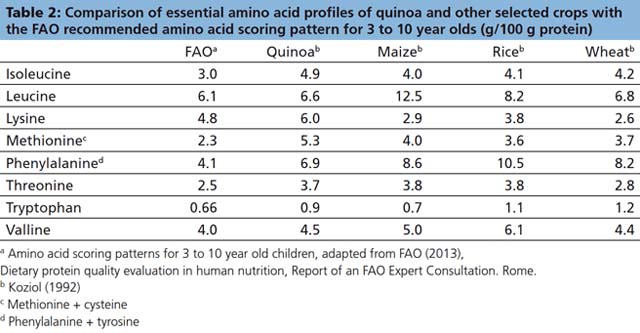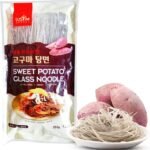Your trusted source for simple, practical nutrition advice and tips for a healthier lifestyle.
Quinoa is a nutrient-dense grain rich in protein, fiber, vitamins, and minerals. It’s gluten-free and contains all nine essential amino acids.
Quinoa stands out as a superfood, offering a wealth of nutritional benefits. This ancient grain is packed with protein, making it an excellent choice for vegetarians and vegans. High in fiber, quinoa aids in digestion and promotes a healthy gut.
It is also a good source of essential vitamins and minerals, including magnesium, iron, and B-vitamins. Being gluten-free, quinoa is suitable for those with gluten intolerance or celiac disease. Its complete amino acid profile ensures you get all the essential nutrients your body needs. Incorporating quinoa into your diet can contribute to overall health and wellness.

Credit: www.healthline.com
Introduction To Quinoa
Quinoa is a tiny, grain-like seed known for its high nutritional value. It is often considered a superfood due to its rich nutrient content.
Ancient Grain
Quinoa has been cultivated for thousands of years. It was a staple food for the ancient Incas. They called it the “mother of all grains.” Quinoa thrived in the harsh climates of the Andes. This made it a reliable food source.
Modern Popularity
Today, quinoa is popular worldwide. It is known for being gluten-free. Many people choose it for its high protein content. Quinoa is also rich in essential amino acids. This makes it a complete protein source.
| Nutrient | Amount per 100g |
|---|---|
| Protein | 4.4g |
| Fiber | 2.8g |
| Iron | 1.5mg |
| Magnesium | 64mg |
| Vitamin B6 | 0.1mg |
Quinoa is versatile and easy to cook. You can use it in salads, soups, and as a rice substitute. Its nutty flavor complements many dishes. This makes it a favorite in modern kitchens.
To cook quinoa, follow these simple steps:
- Rinse the quinoa under cold water.
- Add one part quinoa to two parts water.
- Bring to a boil, then simmer for 15 minutes.
- Fluff with a fork before serving.
Try adding quinoa to your diet. Enjoy its many health benefits and delicious taste.

Credit: www.fao.org
Nutritional Profile
Quinoa is a superfood packed with essential nutrients. It offers a complete nutritional profile that makes it a great addition to any diet. Let’s dive into the details of quinoa’s nutritional profile.
Macronutrients
Quinoa is rich in macronutrients, providing a balanced source of energy.
| Macronutrient | Amount per 100g |
|---|---|
| Carbohydrates | 21.3g |
| Protein | 4.4g |
| Fats | 1.9g |
| Fiber | 2.8g |
Micronutrients
Quinoa is also a powerhouse of micronutrients. These are crucial for overall health.
- Vitamins: Quinoa contains B-vitamins, Vitamin E, and Vitamin A.
- Minerals:
- Magnesium: 64mg
- Phosphorus: 152mg
- Iron: 1.5mg
- Zinc: 1.1mg
- Calcium: 17mg
These micronutrients support various bodily functions and maintain good health.
Health Benefits
Quinoa is a superfood packed with nutrients. It offers many health benefits. This section explores how quinoa improves heart and digestive health.
Heart Health
Quinoa is rich in magnesium. Magnesium helps relax blood vessels. This can lower blood pressure. It also contains potassium and calcium. Both minerals support heart function.
Quinoa has high levels of antioxidants. Antioxidants fight free radicals. This reduces inflammation in the body. Reduced inflammation means a healthier heart.
Quinoa provides fiber and healthy fats. Fiber helps lower cholesterol levels. Healthy fats support heart health. Eating quinoa regularly may reduce heart disease risk.
Digestive Health
Quinoa is high in dietary fiber. Fiber aids digestion. It helps prevent constipation. One cup of quinoa provides 5 grams of fiber.
Quinoa contains prebiotics. Prebiotics promote the growth of good bacteria. These bacteria improve gut health. A healthy gut boosts the immune system.
Quinoa is also gluten-free. This makes it a great option for people with gluten intolerance. It can be used in many gluten-free recipes.
Quinoa is a versatile and nutritious food. Including it in your diet can provide numerous health benefits.
Protein Powerhouse
Quinoa is often called a protein powerhouse because of its exceptional protein content. Unlike many plant-based foods, quinoa offers a complete protein profile. This makes it a valuable addition to any diet.
Amino Acid Profile
Quinoa contains all nine essential amino acids. These amino acids are crucial for growth and repair. They are not produced by the body, so they must come from food.
| Amino Acid | Amount per 100g |
|---|---|
| Leucine | 0.8g |
| Lysine | 0.7g |
| Valine | 0.6g |
Plant-based Protein
Quinoa is an excellent source of plant-based protein. Each cup of cooked quinoa provides about 8 grams of protein. This makes it a perfect choice for vegetarians and vegans.
- Supports muscle growth
- Helps with tissue repair
- Boosts immune function
Including quinoa in your diet helps meet your daily protein needs. This is especially important for people who do not consume animal products.
Gluten-free Advantage
Quinoa is a popular grain. One big reason is its gluten-free nature. People with celiac disease or gluten sensitivity can eat quinoa safely.
Celiac Disease
Celiac disease is a serious condition. People with this disease can’t eat gluten. Gluten is found in wheat, barley, and rye. Eating gluten harms their small intestine.
Quinoa is a great choice for them. It is naturally gluten-free. Eating quinoa helps them avoid gluten. Quinoa also provides essential nutrients. It is rich in protein, fiber, and vitamins.
Gluten Sensitivity
Some people have gluten sensitivity. This is different from celiac disease. They feel bad after eating gluten. Symptoms include bloating, stomach pain, and tiredness.
Quinoa is a good option for them too. It does not cause these symptoms. It is gentle on the stomach. Quinoa is also versatile. It can be used in many recipes.
| Quinoa Nutrients | Amount (per 100g) |
|---|---|
| Protein | 14g |
| Fiber | 7g |
| Iron | 4mg |
| Magnesium | 197mg |
Quinoa is not just gluten-free. It is also very nutritious. This makes it a great food choice for everyone.
Weight Management
Quinoa is a superfood that helps in weight management. It’s rich in nutrients, making it a great choice for a balanced diet. Let’s explore how quinoa aids in weight management.
Satiety Factor
Quinoa is high in protein and fiber. These nutrients help you feel full longer. This satiety factor reduces the urge to snack between meals. Quinoa’s complex carbs provide steady energy. This keeps hunger pangs at bay.
Metabolism Boost
Quinoa contains essential amino acids. These boost your metabolism and help burn calories. The high protein content in quinoa requires more energy to digest. This process, called the thermic effect, aids in weight loss.
| Nutrient | Amount per 100g |
|---|---|
| Protein | 14g |
| Fiber | 7g |
| Calories | 120 |
- High protein and fiber promote fullness.
- Complex carbs provide steady energy.
- Amino acids boost metabolism.
Quinoa is a nutrient-packed food that supports weight management goals. Its unique properties make it an excellent addition to any diet.
Cooking And Preparation
Quinoa is a versatile and nutritious grain. Learning its cooking and preparation methods can enhance its benefits. Below, we explore basic cooking methods and creative recipes to make the most of this superfood.
Basic Cooking Methods
Cooking quinoa is simple. Follow these steps for perfect results:
- Rinse: Rinse quinoa under cold water to remove the bitter coating.
- Boil: Use a 2:1 water-to-quinoa ratio. Boil water, then add quinoa.
- Simmer: Reduce heat, cover, and simmer for 15 minutes.
- Fluff: Remove from heat and let it stand for 5 minutes. Fluff with a fork.
Here’s a quick reference table:
| Step | Action |
|---|---|
| 1 | Rinse quinoa under cold water |
| 2 | Boil water (2 cups water for 1 cup quinoa) |
| 3 | Add quinoa and reduce heat |
| 4 | Cover and simmer for 15 minutes |
| 5 | Let it stand for 5 minutes and fluff |
Creative Recipes
Quinoa can be used in many creative ways. Here are some ideas:
- Quinoa Salad: Mix cooked quinoa with veggies, feta cheese, and a lemon vinaigrette.
- Quinoa Breakfast Bowl: Top with fruits, nuts, and a drizzle of honey.
- Quinoa Stuffed Peppers: Stuff bell peppers with quinoa, beans, and spices, then bake.
- Quinoa Soup: Add quinoa to vegetable or chicken soup for added texture and nutrition.
Experiment with these recipes to enjoy quinoa’s full potential!

Credit: 4lifegrains.com
Sustainability And Farming
Quinoa is known for its exceptional nutritional value, but its benefits extend beyond health. It is also a crop that supports sustainable farming practices. This makes quinoa an environmentally friendly and ethical choice for consumers.
Environmental Impact
Quinoa farming has a lower environmental impact compared to many other crops. It requires less water, making it ideal for arid regions. This helps in conserving water resources.
Quinoa can grow in poor soil conditions. This reduces the need for chemical fertilizers and pesticides. As a result, it helps in maintaining soil health and reducing chemical runoff into water bodies.
| Aspect | Quinoa | Traditional Crops |
|---|---|---|
| Water Usage | Low | High |
| Soil Requirement | Poor Soil | Fertile Soil |
| Chemical Usage | Low | High |
Ethical Sourcing
Ethical sourcing of quinoa ensures fair wages for farmers. It also supports the local economy in quinoa-growing regions.
- Fair wages for farmers
- Support for local communities
- Promotion of traditional farming methods
Ethical quinoa sourcing also promotes organic farming practices. This reduces the use of harmful chemicals and promotes biodiversity. Organic quinoa is often grown using traditional methods, preserving cultural heritage.
Frequently Asked Questions
What Is The Nutritional Value Of Quinoa?
Quinoa is rich in protein, fiber, and essential amino acids. It also provides vitamins, minerals, and antioxidants. This makes it a nutritious option.
Is Quinoa Gluten-free?
Yes, quinoa is naturally gluten-free. It is an excellent alternative for those with gluten intolerance or celiac disease.
How Many Calories Are In Quinoa?
One cup of cooked quinoa contains about 222 calories. It also provides a good balance of protein, fiber, and healthy fats.
What Vitamins Are In Quinoa?
Quinoa is high in vitamins B and E. It also contains folate, iron, magnesium, and zinc, contributing to its health benefits.
Conclusion
Quinoa offers impressive nutritional benefits. It’s rich in protein, fiber, and essential amino acids. Ideal for various diets, quinoa supports overall health. Incorporate quinoa into your meals for a nutritious boost. Its versatility and health benefits make it a valuable addition to any diet.
Enjoy the numerous advantages of this superfood.





